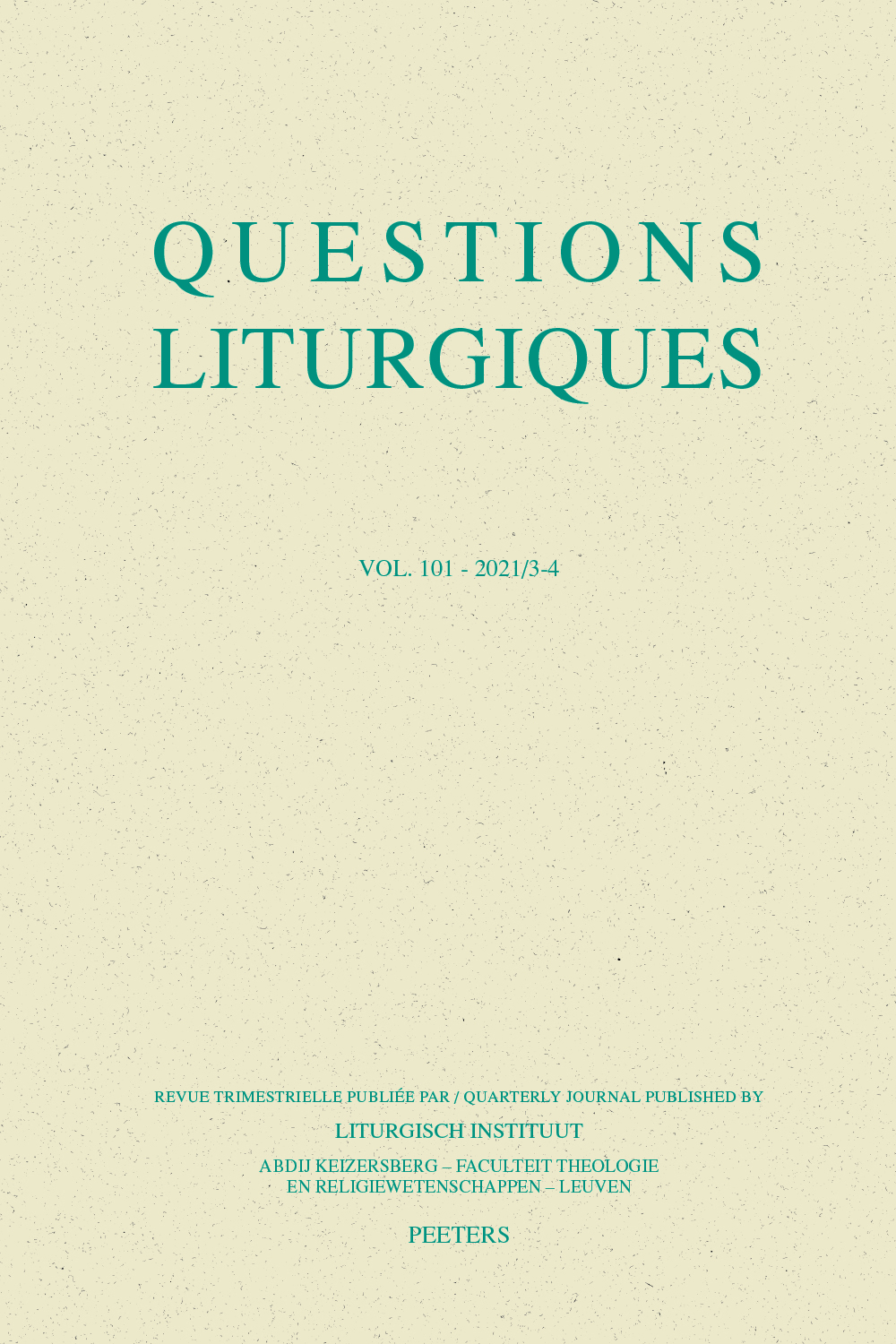 previous article in this issue previous article in this issue | next article in this issue  |

Preview first page |
Document Details : Title: Liturgical Formation as Attunement Subtitle: The Unfulfilled Task of Liturgical Reform Author(s): O'MALLEY, Timothy P. Journal: Questions Liturgiques/Studies in Liturgy Volume: 103 Issue: 1-2 Date: 2023 Pages: 41-57 DOI: 10.2143/QL.103.1.3291653 Abstract : Much attention to liturgical participation, since Vatican II, have attended to both translation and comprehensibility. The presumption often is that if the liturgy is understood, then it will be fruitful. In this essay, the author argues that liturgical formation is not reducible to that which is understood as recently underlined by Pope Francis in Desiderio Desideravi. Instead, liturgical formation related to all rites necessitates a personal attunement to those dispositions necessary for the liturgical act. The author makes this argument through engagement with the theological aesthetics of Hans Urs von Balthasar. The author shows how this conception of liturgical attunement is discernible in the work of Mechthild of Magdeburg and Dietrich von Hildebrand. Liturgical formation, in late modernity, will require a more holistic formation of the human person for the sake of the liturgical act. Depuis Vatican II, la participation liturgique a fait l’objet d’une grande attention, tant au niveau de la traduction que de l’intelligibilité. La présomption est souvent que si la liturgie est comprise, elle sera fructueuse. Dans cet essai, l’auteur soutient que la formation liturgique n’est pas réductible à ce qui est compris, comme l’a récemment souligné le pape François dans Desiderio Desideravi. Au contraire, la formation liturgique liée à tous les rites nécessite un accord personnel avec les dispositions nécessaires à l’acte liturgique. L’auteur présente cet argument en s’engageant dans l’esthétique théologique de Hans Urs von Balthasar. Il montre comment cette conception de l’accord liturgique est perceptible dans l’oeuvre de Mechthild von Magdeburg et de Dietrich von Hildebrand. La formation liturgique, dans la modernité tardive, exigera une formation plus holistique de la personne humaine pour le bien de l’acte liturgique. |
|


